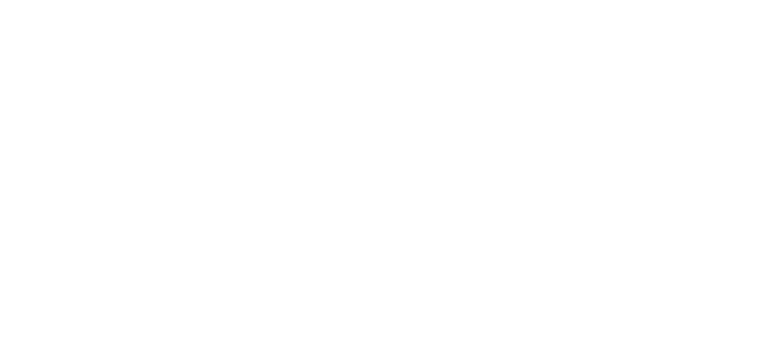
Agenda 2030. Selene’s commitment to a more sustainable future.
Sustainable development is not only a necessity, but also a commitment to society and to the environment we live in.
Selene, who has always been concerned not only with the planet, but also with safeguarding the people who work within it, also strives every day to achieve the goals necessary for sustainable and social development.
These goals are so important that, in September 2015, more than 150 international leaders met at the United Nations to establish the necessary points to support and achieve global development, promote human well-being and protect the environment.
The Member States approved the 2030 Agenda, an ambitious plan with 17 goals (SDGs, Sustainable Development Goals) and 169 targets, which aim to end poverty, combat inequality and promote social, economic and sustainable development.
Speaking specifically about the rubber-plastics sector, through the CIRCULAR PLASTICS ALLIANCE, the European Community aims to reach 10 million tons of recycled plastic for the production of new products by 2025.
Selene fits perfectly within this context, as it is actively engaged at the environmental level, trying to promote a circular economy and an increasingly sustainable production.
What is Selene's commitment to the 2030 Agenda?
- Good employment and economic growth: Selene promotes sustainable growth and the creation of sufficient jobs, in full respect of human rights.
Selene generates decent jobs, continuously investing resources for the training of its employees.
It is important to protect labor rights and promote a safe and secure place for all workers, encouraging a fair and non-discriminatory environment. - Innovation and infrastructure: Selene invests in technologies that enable growth by fostering a more circular and sustainable economy, creating jobs and promoting prosperity.
For Selene, it is important to adopt clean and environmentally friendly technologies and industrial processes necessary to make the industry as sustainable as possible (in accordance with European objectives and directives and with the Circular Plastics Alliance). - Responsible consumption: Selene aims to substantially reduce the production of waste through measures such as recycling, becoming a promoter of a circular economy, guaranteeing sustainable consumption and production patterns.
It also undertakes to achieve the ecological management of chemicals and all waste throughout the product's lifecycle, in accordance with agreed international frameworks, and to significantly reduce their release into the air, water and soil, in order to minimize environmental impact. - Fight against climate change: Selene produces a large part of its packaging from recycling (with the intention to be able to produce increasingly more) and from the reuse of raw materials derived from used plastic packaging, actively contributing to the promotion of measures and behaviors that go against climate change, encouraging a sustainable development of the economy.
Selene is at the forefront of the market thanks to a more widespread adoption of technologies that involve the use of recycled material, thus respecting the environment, and adopting industrial processes aimed at making infrastructure and industry itself sustainable. Thanks to an investment in machinery that allows the reprocessing of used packaging, it is perfectly able to manage its production pursuing a circular economy.
Selene's goal is to produce sustainable packaging using plastic waste with the virtuous NextBag™ circular production process. Thanks to this project, which focuses on the development of circular production processes for the recovery of raw materials, Selene addresses all phases of the supply chain:
- Recovery of used bags;
- Recycling, washing and regeneration of waste into quality raw material;
- Reuse of Premium Recycled Polymer (PRP) for the production of new products combined with other polymers.
The first step involves the recovery of used packaging, adequately separated and stored at customers' plants and collection centers as plastic waste. Selene, with its own logistics organization, periodically collects the packaging and verifies its suitability.
The second step, the recycling and regeneration phase, involves the grinding of the packaging and washing using water-based detergents, free of solvents. After rinsing and drying, the resulting material is regranulated and validated as Premium Recycled Polymer – PRP.
The third and final step involves the use of PRP in the production of packaging.
Thanks to its load holding capacity and flexibility, PRP is used in the intermediate layer of coextrusion, allowing to redefine the products' formulas.
But that's not all: the extreme quality of PRP, combined with Selene's expertise, allows reducing the thickness of the film by up to 40%, with a consequent reduction in the weight of the packaging and a further boost to sustainability.
Selene is therefore at the forefront of ensuring responsible production and consumption of the available resources, which not only entails the reuse of second-hand material, but also includes an industrial system capable of generating lower CO₂ emissions into the atmosphere, giving a further push to the fight against climate change.
At Selene, we are not only talking about investing in innovation and infrastructure, but also about a fair and sustainable work ethic, which allows a free and non-discriminatory dialogue among its employees.
The skills and abilities of the individual members of the company are acknowledged as indispensable elements for its development and therefore promotes the enhancement of human resources through training and refresher courses.
What do we expect in the future?
- To invest in additional technologies that allow us to produce packaging using regenerated granules derived from waste, becoming promoters of responsible and sustainable consumption of the resources at our disposal.
- To produce using recycled plastic as much as possible.
- To promote lasting, inclusive and sustainable economic growth, full and productive employment and decent work for all.
Selene's goal for the future is to give more impetus to fostering sustainability, further promoting a circular economy system.
In this sense, the company aims to expand its site dedicated to the regeneration of used packaging, investing in technologies that handle not only the recovery of unused secondary raw materials, but also of used packaging.
The investment would consist of technologies that allow the cleaning and reclamation of bags, making it a waste capable of being regenerated.
A further step not only in the path of sustainability and circular economy, but also in the employment of additional staff.


